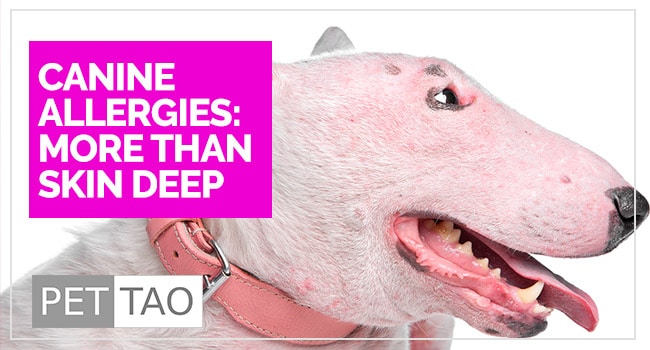Recommended Suggestions On Deciding On Dog Herbalist
Recommended Suggestions On Deciding On Dog Herbalist
Blog Article
What Can Glucosamine/Chondroitin Do To Improve Joint Health In Dogs And Cats?
Glucosamine & Chondroitin is a supplement that's frequently used by dogs and cats to improve their joint health. How they work and what the benefits they bring are:
Glucosamine
Cartilage Repair and Formation
Glucosamine serves a purpose it is a naturally occurring compound in healthy cartilage. It can be found specifically in the fluid around joints. It increases the production of glycosaminoglycans (key cartilage components) and proteoglycans that aid in the process of forming cartilage and repairing it.
Benefits: It is able to slow down the deterioration of cartilage within joints, providing relief from pain and improving joint function.
Anti-inflammatory Effects:
Function: Glucosamine has anti-inflammatory properties that reduce inflammation of the joints.
Benefits: It will reduce swelling and pain that pets experience in their joints.
Chondroitin
Inhibition of Cartilage Breakdown:
Function: Chondroitin is another component of cartilage. It is a naturally occurring substance which helps to prevent the breakdown of cartilage by enzymes.
Benefits: By preventing cartilage from degrading, Chondroitin helps to maintain joint strength and decrease the development of joint disorders.
Improved Joint Lubrication:
Function: Chondroitin is a substance that assists in retaining and attracting water to cartilage. This is essential for the flexibility and elasticity of joints.
Benefits: It enhances the lubrication of joints, which makes movement easier and less painful.
Combined Benefits
Synergistic Effect: Glucosamine and Chondroitin when paired, could have a positive synergistic action, enhancing both supplements' benefits. This combination is usually better at reducing joint pain, and improving mobility.
The use of these supplements regularly will help prevent and manage joint problems in dogs and cats like osteoarthritis. They can be particularly beneficial for dogs that are older or pets with joint problems.
Use and Considerations
Dosage: The dosage may depend on the weight, size and the health needs of your pet. Follow the guidance of your veterinarian or the dosage instructions on the label of the product.
The effects of the side effects are varied. While most pets won't experience any adverse effects however, some can experience mild stomach upset. You should monitor your pet for adverse reactions to the supplement.
The final sentence of the article is:
Glucosamine and Chondroitin are beneficial supplements that support joint health in dogs and cats. These supplements can enhance the quality of life of pets by reducing inflammation, enhancing joint lubrication, and also repairing cartilage. Take a look at the top rated my latest blog post for dogs supplements for joints for more advice including pet stress relief supplements, pet supplements australia, pet wellbeing, pet quercetin supplements, pet supplements for pets with skin conditions, pet meat protein supplements, pet immune support, pet supplements for pets with cancer and more.
How Are Dog And Cat Skin Allergies Helped With Coconut Oil?
Coconut oil has moisturizing, antimicrobial and healing properties. It is a great option to treat skin allergies. Here's how coconut oil can aid pets suffering from skin allergies:
Moisturizing Properties
Skin Hydration
Coconut oil is an excellent moisturizer that penetrates the skin's layers quickly.
Benefits It helps hydrate the skin, which is dry and flaky. It also relieves itchiness. This is particularly useful for pets suffering from dermatitis that is allergic and can cause dry itchy skin.
Anti-inflammatory effects
Inflammation Reduction:
Coconut oil is a source of a chemical called lauric Acid. This is an anti-inflammatory.
Coconut oil can be a fantastic method to lessen the redness and swelling caused by allergies. This is an excellent option for pets with allergic reactions.
Antimicrobial Activity
Fighting Infections
Function: Caprylic and lauric acids in coconut oil have antimicrobial properties that can fight bacteria, virus, and fungi.
Coconut oil has many advantages. It can treat or treat secondary skin infections which are result of scratching or allergies. This helps maintain the good health of your skin while prevents any future complications.
Healing and soothing
Promoting Healing
The function: Coconut oil supports the natural healing process of the skin.
Benefits : It is an all-natural remedy that can help treat minor abrasions and cuts. This can help to accelerate the healing process for damaged skin caused by allergies.
Barrier Protection
Enhancing Skin Barrier:
Coconut oil reinforces the natural barrier of skin.
Benefits : A stronger barrier on the skin protects from environmental irritants, allergens and minimizes allergic reactions.
Dietary Supplements
Internal Benefits
Function: Coconut oil can also be taken orally as dietary supplement.
Benefits: It helps to keep skin health intact from the inside. Its anti-inflammatory and antimicrobial properties could aid in reducing inflammation throughout the body and boost the pet's immune response and reduce the risk of skin allergies.
Use and considerations
Topical Application - Apply a tiny amount of coconut oils directly onto the skin. Massage it gently to ensure it is absorbed. This can be done once or twice per day, based on the severity of the skin problem.
Oral Supplementation: Coconut oil can be added to pet food. The recommended dosage for pets is usually 1 teaspoon coconut oil for every 10 pounds.
Coconut Oil Quality: Choose organic, virgin coconut oil that is free of preservatives, additives and other ingredients.
Check for Reactions: Although coconut oil is generally safe, you should monitor the pet for any adverse reactions, like diarrhea or vomiting when ingested, and skin irritation when applied topically.
If you'd like to learn more about this subject, please click here.
Coconut oil is an effective natural remedy for manage skin allergies on pets and dogs. Its antimicrobial and healing properties as well as its moisturizing and anti-inflammatory properties, can soothe and protect the skin, lessen inflammation and itching, and improve the health of your skin. Coconut oil is a great option on its own or as a supplementation to alleviate symptoms of allergy in pets with skin allergies. Check out the top rated pet wellbeing for website info including pet liver supplements, pet lactation supplements, pet marshmallow supplements, pet supplements for pets with fear of strangers, pet dental supplements, pet cognitive supplements, pet supplements for rehomed pets, pet supplements for pets with fear of leashes and leads and more.
How Can Cat And Dog Yeast Infections Treated By Apple Cider Vinegar?
ACV is often used for treating yeast infections in dogs and cats. Acidity in ACV can lead to negative side effects, so it should not be recommended without veterinary supervision. ACV assists in treating yeast infections.
Antifungal Properties
Acidic environment
Function: ACV is acidic, with a pH that is typically between 2.5 and 3. This acidic atmosphere can cause an unhospitable environment yeast growth.
Benefits: Applying ACV topically on your pet or adding it to their bath water will help to decrease the growth of yeast on the skin.
Skin pH Regulated
Balancing Skin pH:
ACV's purpose is to regulate skin pH. This helps maintain a healthy barrier on skin and inhibits yeast growth.
Benefits: Keeping the right pH balance can help prevent yeast acne on your skin and improve the health of your skin.
Anti-inflammatory effects
Reduce Inflammation
Effect: ACV has mild anti-inflammatory properties.
Benefits: reducing swelling could help alleviate symptoms associated with yeast infections such as irritation, pain, and redness.
Support for Digestive Health
Internal Use
ACV's function is to improve digestive health by balancing gut flora, when consumed at very low doses and in extremely diluted forms.
Benefits: A more healthy gut environment may indirectly reduce yeast overgrowth through supporting overall immunity and balance of microbial activity.
Use and Considerations
Topical application: Dilute the ACV in water (1 part ACV and 1-2 parts of water is common) and then spray or rinse it on affected skin areas or the ear. It is recommended to avoid using it directly to open wounds, or sensitive skin.
See a veterinarian prior to considering any usage for internal use. ACV must always be diluted with water (e.g. 1 teaspoon or 1 tablespoon per cup) and taken in small doses.
If you use ACV topically, watch out for irritation or allergic reactions. Discontinue ACV use if negative reactions do occur.
Consultation with a Veterinarian: Prior to using ACV to treat yeast illnesses in animals, it's important to consult with a veterinarian. Your veterinarian will advise you about the best method for dilution, how to apply it and the potential risk dependent on the health of your pet.
Click here to view the full article
Apple cider vinegar might provide benefits in the treatment of yeast infections in dogs and cats However, its use must be approached cautiously and under the supervision of a veterinarian. ACV is acidic, and could create a situation that does not encourage yeast growth. It also has some mild anti-inflammatory properties. A proper dilution and cautious application are essential to avoid irritation or negative effects. ACV treatment is only effective in the presence of veterinary guidance. View the most popular he said about natural dog company for blog recommendations including holistic pet supplements, pet cognitive supplements, pet collagen supplements, pet kidney supplements, pet supplements for pets with fear of change, pet casein protein supplements, pet colostrum supplements, pet supplements for pets with nerve damage and more.